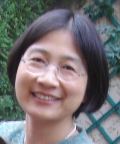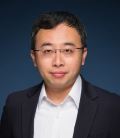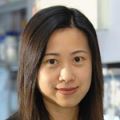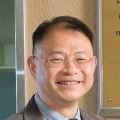|
 |
|
Nicholas J LONG
Imperial College London, London
Professor Nick Long (h-index = 45, ~8100 citations) is the Sir Edward Frankland BP Endowed Chair Professor of Inorganic Chemistry at Imperial. His world-leading research is focussed on synthetic inorganic chemistry and has had impact in catalysis, materials science and biomedical imaging. Professor Long won the Royal Society of Chemistry prize for Organometallic Chemistry (2006), was a Leverhulme Trust Research Fellow (2009/10) and is currently a Royal Society Wolfson Research Merit awardee (2018-2022). Over 40 PhD students have successfully graduated from his group, and nine former group members are now university academics. He also has widespread management experience, being Head of the Catalysis and Advanced Material research section in the Department of Chemistry, Imperial College (2009-2016), and Deputy Director and Chemistry lead for the £8.7 million for the ‘Comprehensive Cancer Imaging Centre’ (CRUK/EPSRC/MRC/DoH) (12/2008-11/2013). In 2006, he founded the MRes in Bioimaging Sciences at Imperial College, and is now Deputy Director of the Kings—Imperial EPSRC Centre for Doctoral Training in Medical Imaging (2013-2027), which trains and graduates around 20 PhD students per year.
|
|
|
 |
|
David PARKER
Durham University, Durham
Professor David Parker grew up in the North-East of England and graduated with a First in Chemistry from Oxford in the summer of ‘78. After a D.Phil. with John M Brown on mechanistic studies in asymmetric catalysis, in 1980 he took up a NATO fellowship to work with Jean-Marie Lehn in Strasbourg. He returned to Durham in January 1982 to a Lectureship in Chemistry and was promoted to a Chair in 1992. He received the RSC Hickinbottom Fellowship for 1988/9, the Corday-Morgan Medal and Prize(1987) in 1989, the ICI Prize in Organic Chemistry in 1991, an RSC Interdisciplinary Award in 1996, a Royal Society Leverhulme Trust Senior Research Fellowship (1998/9), the inaugural IBC Award for Supramolecular Science and Technology in 2000, the first RSC award for Supramolecular Chemistry in 2002, a Tilden Lectureship and Silver Medal in 2003, the Ludwig Mond Medal in 2011 and the triennial Lecoq de Boisbaudran award for rare earth science in 2012. In 2002, he was elected a Fellow of the Royal Society of London, and in 2014 was recognized as a RISE Fellow by EPSRC. He has twice served as Chairman of Durham Chemistry and held an ERC Advanced Investigator Grant (2011-16). |
|
| |
|
|
|

|
|
Ling PENG
Aix-Marseille University, Marseille
Professor Ling PENG is a research director at the French National Scientific Research Center (CNRS) and a group leader in the Interdisciplinary Center on Nanoscience in Marseille (CINaM) at Aix-Marseille University in France. She carried her undergraduate study in polymer science with Prof. Chen Rongshi at Nanjing University in China, her PhD program in organic chemistry with Prof. Albert Eschenmoser at Swiss Federal Institute of Technology in Zurich, Switzerland, and her postdoctoral research in pharmaceutical science with Prof. Maurice Goeldner at Louis Pasteur University of Strasbourg in France. She was recruited as a research scientist in CNRS in 1997, promoted as a CNRS research director in 2008, and then 1st class Research Director in 2015.
Professor Ling PENG has been working actively at the interface of chemistry and biology, and in particular, developing functional dendrimers for biomedical applications, molecular probes for exploring biological events and drug discovery program. She has developed bio-inspired and self-assembling dendrimer nanosystems for the delivery of anticancer drugs, nucleic acid therapeutics and imaging agents. One of the dendrimer systems developed by her team has been scheduled for clinical study. Professor Ling PENG was awarded with the Prize of Dr & Mme Henri Labbé of the French Academy of Sciences in 2017, and her research group has been labelled by “La Ligue Contre le Cancer” in France. |
|
|

|
|
Gary Ka-Leung WONG
Hong Kong Baptist University, Hong Kong
Professor Ka-Leung Wong obtained his Chemistry BSc at City University of Hong Kong in 2002 and PhD at The University of Hong Kong in 2006. He pursued this postdoc work in Durham University with Prof. David Parker FRS with the support of Royal Society Incoming Fellowship. He started his independent research group at Hong Kong Baptist University in 2011 and promoted to be a professor in 2017. Since 2018, he starts headship in chemistry department. He has published more than 120 papers, including Nature Sister Journals, LSA, PNAS and JACS (h index = 39, citation >4000) and awarded 2015 ERES Junior award from The European Rare Earth and Actinide Society. His research interests include image guided cancer therapy, photoactivated therapy, lanthanide chemistry and spectroscopy. He is served as an editor in Journal of Luminescence (Elsevier) and international advisory board member in ChemPlusChem (Wiley). |
|
|

|
|
Alice S. T. WONG
The University of Hong Kong, Hong Kong
Professor Alice S. T. Wong received her BSc (First Class Honours) and MPhil at the University of Hong Kong. She continued her education at the University of British Columbia, where she obtained her PhD. She then worked at the Memorial Sloan-Kettering Cancer Center as a Postdoctoral Fellow. She joined the University of Hong Kong in 2002, and is currently a Professor in School of Biological Sciences at the University of Hong Kong. She is distinguished for her research in signal transduction and tumorigenesis, with special focus on cell adhesion dynamics pertinent to cancer development and metastasis. She is internationally recognized and widely published. Her research results have generated excellent scientific papers which also appeared on the cover pages or as highlight articles of top journals. She is also the recipient of numerous awards, including the Women in Cancer Research - Brigid G. Leventhal Scholar Award, the Bristol-Myers Squibb Oncology Young Investigator Scholar Award, the HKU Outstanding Young Researcher Award, and the Croucher Senior Research Fellowship.
|
|
 |
|
Ge ZHANG
Hong Kong Baptist University, Hong Kong
Prof. Zhang Ge (M.D.) is Associate Director of Law Sau Fai Institute for Advancing Translational Medicine in Bone & Joint Diseases (TMBJ) in Hong Kong Baptist University. His interests focus on aptamer-based translational research and drug discovery in musculoskeletal system and tumor. Since 2004 to start his research career, he has published 231 peer-reviewed journal papers with 3275 citations. As a corresponding author, he has published 3 papers in Nature Medicine and 4 papers in Nature Communications in the past six years. His research has been supported by Hong Kong General Research Fund (GRF), Hong Kong Innovation and Technology Fund (ITF), Switzerland AO Foundation and by other funds in mainland China. |
|
| |
| |
| |
|